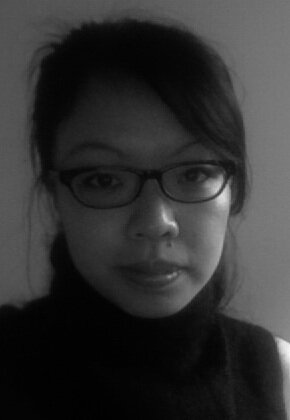Going Cross-cultural in Tel Aviv
In Israel's most cosmopolitan beach city, I was served Japanese sashimi made by a Burmese, over lessons of democracy.
He arranged the salmon pieces carefully in a rosette.
“You should try them with this,” he called out from behind the counter. “I learnt it at the seafood restaurant I worked at.”
He drizzled sesame oil and sprinkled coarse grains of kosher salt on the fish. It made the salmon sublime, even more so than regular soy and wasabi.
Ohn Cho runs this cosy sushi bar in downtown Tel Aviv on weekends, on top of his regular job at another restaurant. It doesn't pay him a lot, just about 27 shekels an hour (US$7), but he learns to manage a small eatery.
“I can run a place like this in the future. I have to think about the future,” he said.
Ohn Cho has been here in Israel for 10 years now. He's waited on tables in different restaurants, and had his share of unpaid salaries and situations where he is taken advantage of, simply because he is foreign. But now, he's made a comfortable life for himself here in Israel. He rents a room in a shared apartment nearby, and in his free time, enjoys a walk on Tel Aviv's beaches.

Ohn Cho at work behind the counter of the sushi bar. His dream is to open a similar operation here in Israel.
Life is good here, but Cho hasn't forgotten where he's come from, and how life isn't quite that great there.
“Israel is a desert country, but we don't have to worry about water. In Burma we have wells, but sometimes we have no water.”
Burma. That's what Cho calls his country, and he is “Burmese” because he is not from Myanmar. That is the military government's name for the country. Just like their national flag with the fourteen stars. Cho's is the one with five stars. That is the flag of a democratic Burma. That is Cho's Burma.
Cho is a Karen, a tribe that remains locked in fighting against the military government, not unlike the struggle for democracy waged by Aung San Suu Kyi.
Today Cho started a petition against elections in November, which Aung San's National League for Democracy is barred from taking part in. The NLD had won the last elections in 1991, but the military leadership refused to recognise the results. It seized power and threw Aung San under house arrest.
From almost half a world away, Cho follows closely what goes on back home and is an unofficial ambassador of sorts.
In our country, there is repression and people don't know things… For me, I am free, I am outside and it is my duty to tell the world about what is happening in my country.
“In our country, there is repression and people don't know things. Many people, because of the repression, they are scared to speak out, even after they left the country. For me, I am free, I am outside and it is my duty to tell the world about what is happening in my country.”
He performs this duty when he can, whether it is getting people to sign the petition, or telling them about the political situation. And he's found a willing audience that he hadn't expected.
“People here in Israel, even if they are young, they know a lot about politics. I am very surprised.”

An Israeli vegetable sushi of carrot, cucumber avocado and asparagus.
Photo credit: Dan-Chyi Chua
Like them, Cho keeps abreast of what's going here in Israel as well. We discussed Israel's religious hardliners and their anti-immigrant policies, and the next day's protest against the Israeli government's decision to deport 400 children of foreign migrant workers here.
“I am going to go there, after I finish work,” he said.
He keeps busy. Laughing, he added, “I don't have time for girlfriends,” referring to my earlier question, if he was planning to marry and settle down here in Israel.
“When I am not working, I spend time on this. I tell people about my country. Some of my friends, they don't care about this, only about money. For them, time is money. It is valuable for me too. But I spend my time to do this.
“Miss Aung San, she is a woman, she sacrificed so much for Burma. I am a man, I must do what I can.”
As for settling down, he explained smilingly, “It is like my back. I can't see what [will] happen, and I can't plan when.”
He is not rushing that, but for Burma, he will fight every day, for the country he left, but remains in his heart, very much attached to.


















